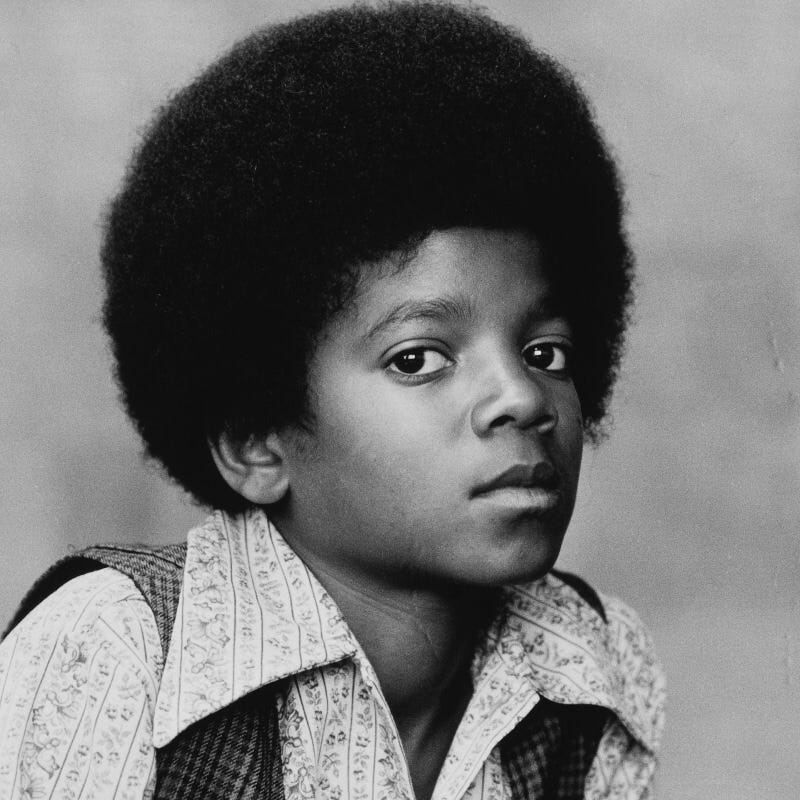last week I shared the idea that where we place our attention transforms us. I want to draw that out a bit more here. my intention is to provoke awareness & reflection, not create shame or assign blame… a cheerful caveat… without further ado:
if we are transformed by what we give our attention to, then what does that suggest?
if the core of our attention is meant to root down into the goodness of God, but we place the core of our attention elsewhere, then that too will form us… perhaps we could say it will tend to form us according to its nature.
if the tree planted by streams of water yields fruit in season and doesn’t wither, then what of the tree planted near a toxic spill?
and if an excess of attention is given to someone, it’s like communicating to them that they are more than a mere human—they are god-like to us.
imagine the amount (and kind) of attention we give to famous people (think of young Michael Jackson, if that helps). or if you’ve never witnessed it, watch the Beatles being greeted as they arrive home to an awaiting 12,000 screaming fans (apparently loud enough to “put 3 Atlas missiles in orbit, and power 54,000 transistor radios”).
we are not built to withstand such scrutiny, or such praise. it seems like this kind of attention, given en masse to an individual, is deformative—both for the attention-givers, and the attention-receivers.
I cannot imagine the corrosive power that amount of attention would have on an individual. or if not corrosive, then perhaps the temptation it suggests towards power and abuse.
this is part of why communities built around a cult of personality trend sick. and maybe also why the cult leaders stay and become more sick. we are saying to them, in our devotion, you are more than human—to us, you are a god. and human individuals are not meant to sustain god-level attention and devotion.
our culture has a cult of fame, entire industries propped up by it.
but if we know it’s deformative, then how do we disempower and divest from the cult of fame?
by giving our attention where it belongs, where it is deserved—to the true God-man who can sustain and surpass all of our scrutiny and all of our praise.
when we allow ourselves to be formed by the God-man, humble and self-giving unto death, we will image God (see theosis here) in a way that invites others into the same journey of transformation—to become more like him…
THE DEVAS / DIVAS
some of you know if you’ve been here for a bit, that I’ve been a something of a quest through some of the oldest, longest-lasting texts and stories. I shared my reasons for doing so here, but essentially I was curious/concerned about the breakdown of trust in our culture, and wondered what some of the stories that we still feel a sense of belonging to might have to say about that.
and in my readings, I stumbled on the devas. (not the divas… but also not not the divas.)
devas are a type of god-being in Hindu mythology. but etymologically speaking, the concept is not restricted to the Indian subcontinent.
“devas” —> “deus” —> “Dios”
the word/concept “deva” is also connected to “day”, “divine”, “Zeus", “Tuesday”, “journey”, “adios”, and yes “diva”. here’s a nice word-study.
why am I telling you this?
I think it’s important to acknowledge that our culture is rife with god-like adoration. and I don’t think it’s a stretch to bring this adoration full-circle, and to connect our praise for the divas of entertainment culture to the worship of the devas…
and no, I’m not saying to get you Beatles records out and burn them, or that listening to music is worship.
but the kind of attention we give to people transforms us—we literally place people in the center of a great gathering, often above the rest of us, and lift up ecstatic shouts of joy, and we might even (if the show is good) describe our experience as a religious experience.
it is a religious experience. (some etymologies connect the word “religion” with “to bind together” as in binding together human and divine, or binding people together)
one of the hidden in plain sight curiosities of the Hebrew scriptures is that they don’t depict a monotheistic (“one god”) world. they depict a world where it seems every region has its own people, who have their own regional deities. but although the scriptures present a view of many gods, there remains a resounding leitmotif for the descendants of Abraham of monolatry, or “the worship of one god”.
not only that, but from the Bible to the Mahabharata to the Shahnameh there is this theme of demigods—beings who are half god, half human. sometimes representing the spirit of a god on earth. sometimes taking a god as their father (a demigod might be described as being “from a god”, or a “son of Brahma”).
setting aside the mechanics and genetics of such a being, can you imagine the sort of life that one of these “god-men” would live? can you imagine being told that everyone you ever met was meant to serve you, to kneel before you, to do what you wanted?
supposing these demigods really were magnanimous and wise—gee, I mean, maybe it could turn out alright. the benevolent dictator… but supposing, in their heart, that they were like you or me? and that someone like you or me wielded an ultimate, god-like power over everyone in a region?
this doesn’t sound like a system that promotes human flourishing.
it does sound like a system that reinforces centralizing power and wealth, cult of personality, fatalism, control from above…
well, if this concept of attention has some truth to it, then maybe it’s not as hard to understand why someone would write ERIC CLAPTON IS GOD on a wall in England:
I don’t exactly have a plane to land—I just want to think through the implications of our attention and ponder on it.
it’s also strange to consider the recent emergence of the data-driven “attention economy”—that all that we look at online, shopping, social media “explore” pages, scrolling, and even talking in the privacy of our homes with our friends… is all being harvested and aimed back at us as ads.
our attention is powerful, and valuable.
it transforms us, and it can do so positively—changing us for the good—or it can be deformative—changing us into something worse.
in a seemingly off-the-cuff conversation with a reporter, John Lennon (of the Beatles) said they were bigger than Jesus. I don’t intend to parse out what he meant, but there are certainly some cross-currents with this demigod theme…
there’s a moment at the end of this footage where they are being asked to comment on the “bigger than Jesus” quote, and after more or less dispelling the nature of the quote, the reporter sets up another question:
Reporter: What's the most enjoyable thing to you four about this adulation, this almost godhood on earth that you’ve achieved?
George: Don’t say that…
next week I plan to shift gears and share some thoughts on songwriting.
perhaps it would be apt to end with a quote from a letter to the Macedonian church in Philippi:
Finally, brothers and sisters, whatever is true, whatever is noble, whatever is right, whatever is pure, whatever is lovely, whatever is admirable—if anything is excellent or praiseworthy—think about such things.
thanks for being here. I write weekly sharing poetry, songs, musings, thoughts on creative life, and hopefully some encouragement… my first collection of poetry, Snowmelt to Roots, is available in my shop, (or on Amazon). and my music is available here.
peace,
Z






Thanks for writing this. I think it’s super important to keep this in mind in today culture. It’s so easy to spend time & money on musician or whoever we see as amazing, and i think it’s important to either spend equal if not more time in the world or however that looks for each person. I feel like I’ve probably slipped into this with one of my favorite bands… phish. Loads of ppl I know always say, it’s a religious experience going to their shows. In a way, what they mean is, it’s where they feel free, love, & comfort. Which is so amazing, but I think… oh baby if you think this about phish, check out Jesus/god. Though it may not be an identical 1-1, I get what they are looking for & I get those same feelings in church, reading the Bible, worshiping with music etc.
Thanks for the reminder Zach :)